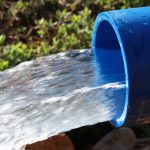Water Treatment for Agriculture: Enhancing Crop Yield and Soil Health

1. Understanding Water Quality and its Impact on Agriculture
Water quality directly affects crop performance and soil health. Contaminants such as salts, heavy metals, and pesticides can hinder crop growth and cause soil degradation. Additionally, poor water quality can lead to an imbalance of nutrients and reduce the effectiveness of fertilizers and pesticides. Therefore, it is crucial for farmers to understand and address water quality issues to optimize crop yield.
2. Importance of Water Treatment in Agriculture
Water treatment serves as a means to improve water quality for agricultural purposes. By removing contaminants or adjusting certain parameters, farmers can ensure that the water they use for irrigation meets the necessary standards. Treating water also helps in preventing the spread of waterborne diseases and protecting the environment from pollutants. Moreover, water treatment technologies make it possible to utilize different water sources, including wastewater and brackish water, reducing the dependency on freshwater resources.
3. Common Water Treatment Techniques in Agriculture
Several water treatment techniques are commonly used in agriculture. One such technique is filtration, which removes suspended particles and sediments from water. Filtration can be achieved using various methods like sand filters, cartridge filters, or membrane filtration. Another prevalent technique is disinfection, which kills harmful microorganisms in the water. Chlorination and ultraviolet (UV) irradiation are widely used disinfection methods. Additionally, desalination is employed to remove salts from brackish or seawater, making it suitable for irrigation.
4. Optimizing Nutrient Delivery through Water Treatment
Water treatment can also enhance the delivery of nutrients to crops. Through techniques like fertigation, farmers can inject fertilizers directly into the irrigation water. This method ensures a precise and efficient distribution of nutrients, reducing waste and maximizing crop uptake. By incorporating water treatment into fertigation systems, farmers can adjust the water’s pH and nutrient levels, optimizing the nutrient availability for plants.
5. The Role of Water Treatment in Sustainable Agriculture
Water treatment supports the principles of sustainable agriculture. By treating and reusing wastewater, farmers can minimize water wastage and reduce the strain on freshwater resources. This promotes water conservation and environmental stewardship. Additionally, by improving water quality, water treatment reduces the need for excessive use of fertilizers and pesticides. This, in turn, decreases the risk of contamination and contributes to the preservation of soil health.
6. Challenges and Future Opportunities in Water Treatment for Agriculture
Despite its many benefits, water treatment for agriculture faces certain challenges. The high cost of implementing water treatment technologies and lack of awareness among farmers are common obstacles. Moreover, the availability of suitable water treatment technologies for specific regions and crops needs to be addressed. However, there are numerous opportunities for future advancements in this field, including the development of cost-effective and energy-efficient treatment technologies that can be easily adopted by farmers worldwide.
Summary
Water treatment plays a crucial role in agriculture by enhancing crop yield and soil health. By improving water quality, treating contaminants, and optimizing nutrient delivery, farmers can overcome water scarcity and poor water quality challenges. Water treatment not only ensures the availability of water for irrigation but also promotes sustainable agriculture practices. Although there are challenges, the future holds great potential for further advancements in water treatment technologies for agriculture. Through innovation and collaboration, we can continue to improve crop production and protect our precious water resources.
Got Questions? Let Us Help!
Welcome to Royal Water Works, Inc.! We are a family-owned business that has been serving the heart of Pisgah Forest, NC for over twenty years. As an environmental service company, Royal Water Works, Inc. partners with contract operations for water testing, water filtration design, wastewater operations, iron removal, PH adjusting, ultraviolet disinfection, and more. We provide a high degree of customer service and quality work to ensure we get the job done. Call us today; we can’t wait to hear from you!
Categorised in: Water Treatment Service
